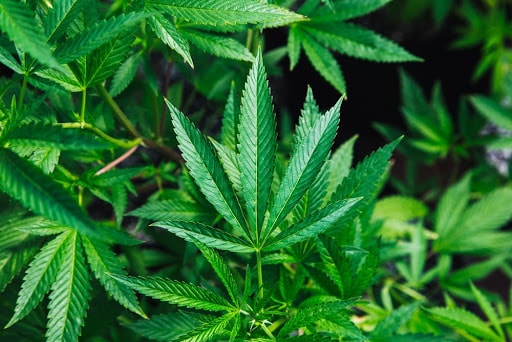Marijuana is a drug that is derived from the cannabis plant. This psychoactive drug has been used for thousands of years for myriad reasons, from religious rituals to medicine. In modern times, marijuana is a highly abused recreational drug. In fact, in the United States, marijuana is the top most abused illegal drug, surpassing even heroin and cocaine. While research does support the legitimacy of medical marijuana for certain highly specific purposes, such as helping cancer patients treat the nausea they experience during chemotherapy and alleviating pain, the vast majority of marijuana use is purely recreational. While marijuana’s legal status has changed in certain parts of the country, such as California, where it is now legal to consume it, even legal marijuana use can be habit-forming and lead to addiction.
Marijuana can be one of the most difficult substances to quit. While it is not as physically addictive as other common drugs of abuse, marijuana use is widely accepted in mainstream culture. Just like alcoholics often find it difficult to admit to a problem in a culture that celebrates drinking, quitting marijuana in a culture where the drug is perceived as “safe” and non-addictive can feel difficult. The increasing legality of the drug and social stigma surrounding addiction can make people with marijuana abuse problems feel like they’re imagining their problems. Many people — and even some treatment programs — fail to treat marijuana addiction seriously. The result is that people who are suffering are forced to face their battles alone.

Despite the drug not being severely physically addictive, substance use disorders can easily occur with marijuana. People who use it throughout the day, those who are unable to control their own consumption, and individuals who have found their quality of life reduced by marijuana abuse are exhibiting all the classic signs of addiction. People who have developed this unhealthy relationship with marijuana will often be unable to stop using no matter how much damage the drug inflicts on their lives — and no matter how much willpower they exert to quit.
If you have tried to quit multiple times with little success and feel that marijuana abuse or marijuana withdrawal is negatively impacting your mental health, you are not alone. Long term sobriety is possible. Treatment programs for marijuana addiction generally emphasize developing life skills, support groups, and behavioral therapies such as cognitive-behavioral therapy and motivational enhancement therapy. By making use of the resources, expertise, and support of a rehab center or addiction center, even the most hopeless-seeming cases of marijuana addiction can be treated. Marijuana addiction, like other forms of substance abuse, is a legitimate mental illness, though with outside support it can be managed. For those who want it, long term sobriety is possible.
Individuals who find themselves unable to stop abusing marijuana likely suffer from marijuana addiction, a condition psychiatrists and mental health professionals refer to as cannabis use disorder. Cannabis use disorder is a mental health condition that increases the likelihood of a range of other co-occurring disorders, such as alcohol use disorder and major depression. As such, it can sometimes be difficult to distinguish marijuana addiction from other forms of mental illness without the help of a professional. When it comes to marijuana, drug addiction is diagnosed based on symptoms. The Diagnostic and Statistical Manual of Mental Disorders (DSM-5), published by the American Psychiatric Association, is the guide medical professionals use to diagnose people who are addicted to marijuana. The signs of marijuana addiction as defined by the DSM-5 are as follows:
People who are addicted to marijuana are at a higher likelihood of experiencing a number of long term effects on their physical and mental health. These include problems with:
People who are addicted to marijuana are at a higher likelihood of experiencing a number of long term effects on their physical and mental health. These include problems with:

Beyond these direct consequences, marijuana abuse also harms a person’s ability to function normally in their own lives. According to the Substance Abuse and Mental Health Services Administration, people who use marijuana are more likely than other populations to have interpersonal problems with family members and other loved ones. They have worse career and educational outcomes. Marijuana users also frequently report lower overall life satisfaction.
People who have an addiction to marijuana also have an increased risk of developing mental health conditions. These conditions include major depression, anxiety disorders, other substance use disorders, and schizophrenia. Young people who smoke marijuana that have high concentrations of THC are more than 5 times more likely to develop psychosis than non-smokers. While there are many links between marijuana consumption and mental illness, the reverse is also true. Many people who suffer from untreated mental health problems turn to marijuana as a form of self-medication. The result is often a vicious cycle, wherein marijuana use exacerbates symptoms of mental illness and mental illness leads to greater marijuana consumption. Treating substance use disorders is difficult alone, but the process is significantly complicated by the presence of other conditions. It is essential that anyone suffering from comorbid mental health conditions make use of treatment options that offer integrated treatment for dual diagnosis patients.
It may be tempting to quit marijuana by yourself, especially if social stigma around addiction has led you to believe that seeking help is weak. While some people do manage to quit marijuana on their own, people who suffer from marijuana addiction are by definition unable to do so. Addiction is inherently a problem with self-will; when people develop dependence and addiction on a certain drug, that drug hijacks areas of the brain associated with motivation and decision-making. As a result, even when a person wants to quit, they will often find that they are unable to do so. Some people with marijuana addiction are able to stay away from marijuana for periods of time, such as a few days, a few weeks, or even a few months, but without treating the underlying substance use disorder, relapse is inevitable. This experience can be deeply demoralizing and may discourage people from trying to quit ever again.

While marijuana withdrawal symptoms are rarely severe enough to warrant enrollment in a medical detox center, cannabis withdrawal after a long period of heavy use can nonetheless be quite debilitating. When people experience withdrawal from marijuana, their mental health tends to suffer considerably. Some experience physical symptoms as well, such as night sweats. Having access to social support groups, the resources of an addiction treatment center, and the full support of family members and loved ones is absolutely essential to a successful detox. Smoking weed is often lonely for people with marijuana addiction, and quitting cold turkey is likely to be a similarly lonely and arduous experience. Getting help is ultimately not just more effective — it feels better.
Create Recovery Center’s marijuana addiction treatment program is directed by counselors and medical professionals with lengthy experience in addiction treatment. Create Recovery Center offers scientific and evidence-based treatment methods in a nonjudgmental and safe environment. Whether you are beginning the initial process of detoxing or working on rebuilding your life after getting some sober time, Create Recovery Center takes a holistic and personal approach to guarantee that the unique needs of each individual are met.
The staff at Create Recovery Center understand that getting sober involves much more than just abstaining from abusing marijuana. People pursuing treatment at Create Recovery Center take the time necessary to rebuild their lives from the ground up. They secure employment, work to rebuild relationships and develop coping tools and skills that will aid them in the future. We work individually with each patient to make sure they have what it takes not only to avoid relapse over the long term, but to live joyful and fulfilling lives in sobriety.

Services we offer include:
No matter what stage of addiction recovery you’re at, Create Recovery Center is here for you if you’re prepared to make a change. Marijuana addiction can feel demoralizing, but individuals who have made progress in our addiction treatment program have a different story to tell. Long term sobriety is yours for the taking. Contact Create Recovery Center today.